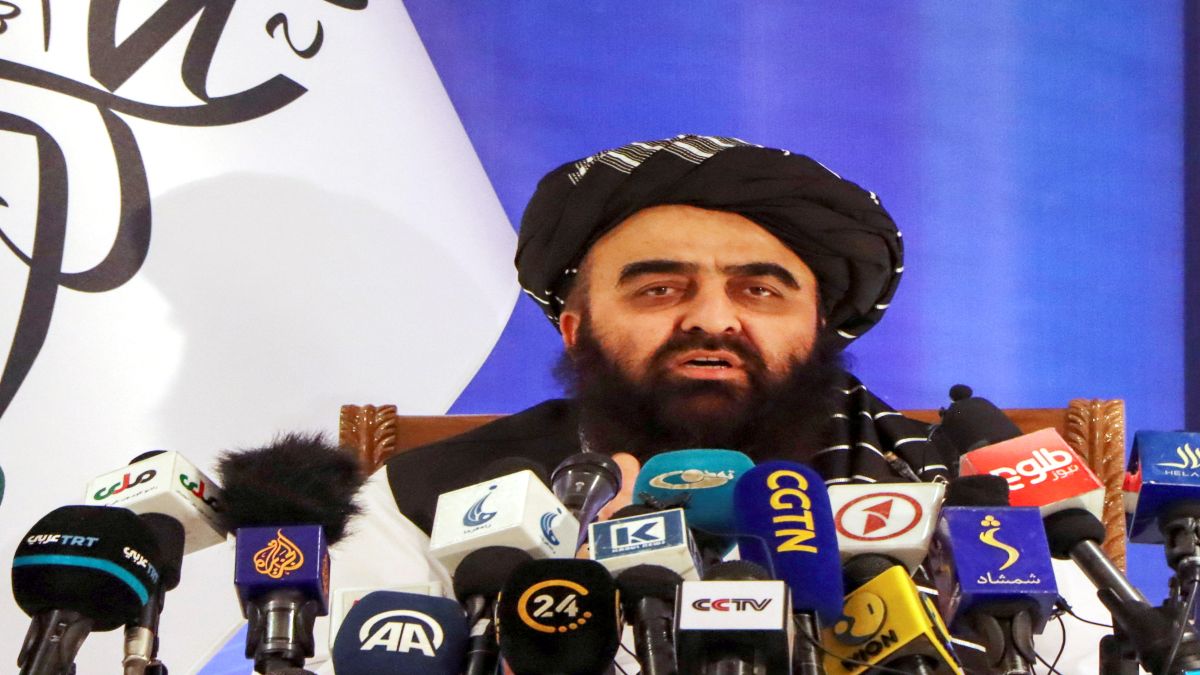It’s been four years since the Taliban took over Afghanistan once again, and it seems that their period of isolation is slowly coming to an end. This comes after news emerged that Afghan Foreign Minister Amir Khan Muttaqi of the Taliban government will visit India on October 9, marking a new chapter in India-Taliban engagement.
Ahead of Muttaqi’s visit, we take a closer look at why this trip matters for India.
Muttaqi’s visit to India
Taliban’s Foreign Minister Amir Khan Muttaqi is expected to visit India from October 9 until the 16 after the United Nations Security Council (UNSC) approved an exemption to the travel ban imposed on him.
The UN Security Council’s Taliban Sanctions Committee announced that it “approved an exemption to the travel ban for Amir Khan Muttaqi to visit New Delhi, India, from October 9 to 16, 2025.”
Muttaqi has been under UN sanctions since January 25, 2001, which placed him on the list subjecting him to a travel ban, an assets freeze, and an arms embargo. This means that if he wished to travel, he would need a clearance from the UN sanctions committee.
Now, after receiving the waiver, the Taliban minister will visit New Delhi with the focus being on developmental assistance to Afghanistan, which has been struggling with scarcity of essential medicines and agricultural products since their takeover of Afghanistan in 2021.
According to The Hindu, one of the issues that is likely to be discussed is the continued use of Iran’s Chabahar port, especially after US President Donald Trump ended the waiver to India to use the strategically important port.
Moreover, the Taliban minister is likely to raise the issue of Trump wanting the Bagram air base in Afghanistan too — an idea that the Taliban has rejected before.
As per a Hindustan Times report, the Taliban side is also expected to press for the posting of its envoy and more diplomats at the Afghan embassy in New Delhi and consulates in Mumbai and Hyderabad.
Muttaqi’s visit long time in the making
Muttaqi’s visit to India next week comes after his previous plan in September didn’t materialise as the Taliban minister failed to receive permission from the UN.
At the time, reports suggested that the US and Pakistan, currently a non-permanent member of the UN Security Council, were opposed to granting a waiver. As per the rules, all decisions by the committee are by consensus, and even if one country objects to a decision, it can be blocked.
Notably, in the earlier travel request, it is believed that Islamabad blocked Muttaqi’s visit to India. The Taliban official was also scheduled to travel to visit Pakistan in Afghanistan, which was called off due to an objection by the US, according to media reports.
Notably, Muttaqi’s visit in September was to come after External Affairs Minister S Jaishankar disclosed that he had spoken to Muttaqi earlier in May. At the time, India’s foreign minister was quoted as saying, “I had a good conversation with him,” adding that he “deeply appreciated his condemnation of the Pahalgam terrorist attack.” Jaishankar further added that he “welcomed his firm rejection of recent attempts to create distrust between India and Afghanistan through false and baseless reports. Underlined our traditional friendship with the Afghan people and continuing support for their development needs. Discussed ways and means of taking cooperation forward.
Also, it’s part of India’s long diplomatic game; India has been courting the Taliban since earlier this year. Indian officials, including Foreign Secretary Vikram Misri and senior IFS officer JP Singh, have held multiple rounds of dialogue with Muttaqi and other Taliban leaders, often meeting in neutral venues like Dubai.
India-Taliban and a strategic realignment
Muttaqi’s visit to India is significant for a number of reasons. Firstly, it’s the first such high-level visit from Kabul to New Delhi since the Taliban seized power in Afghanistan in August 2021. It’s important to note here that India has long been anti-Taliban. In fact, New Delhi was even against the Mujahideen in the 1980s.
And after the Taliban dethroned the US in Afghanistan in 2021, New Delhi did not recognise the Taliban regime in the country — even its embassy in the Indian capital suspended operations in 2023.
But despite not recognising the Taliban, India has been keeping up its engagement with them. Experts attribute this to its regional geopolitical and geo-economic interests. The Taliban were long considered a Pakistani asset. However, reality hit Pakistan hard when the Taliban refused to rein in the Tehreek-e-Taliban Pakistan (TTP), which has increased its attacks inside Pakistan since the Taliban regime’s seizure of power in Afghanistan. The patron-client relationship between the Taliban and Pakistan ceased to exist, which provided India an opportunity to ease its opposition to the Taliban.
There’s also the China factor. India is aware that Beijing is cosying up to the Taliban and that could endanger New Delhi’s position in the Central Asian region. Since their coming to power, Beijing has been courting the Taliban with an eye on Afghanistan’s resources.
India also needs access to Central Asian markets and for that it needs the Taliban.
As Shanthie Mariet D’Souza, an Afghanistan expert, told DW earlier, “At the heart of India’s policy is the goal of regaining its lost influence and reestablishing its connections in Kabul. Additionally, India aims to restore its influence in a region where China has significantly stepped up its presence since August 2021.”
The visit next week, will no doubt, be closely watched by all, as many believe it could redraw power equations across South Asia.
With inputs from agencies
)